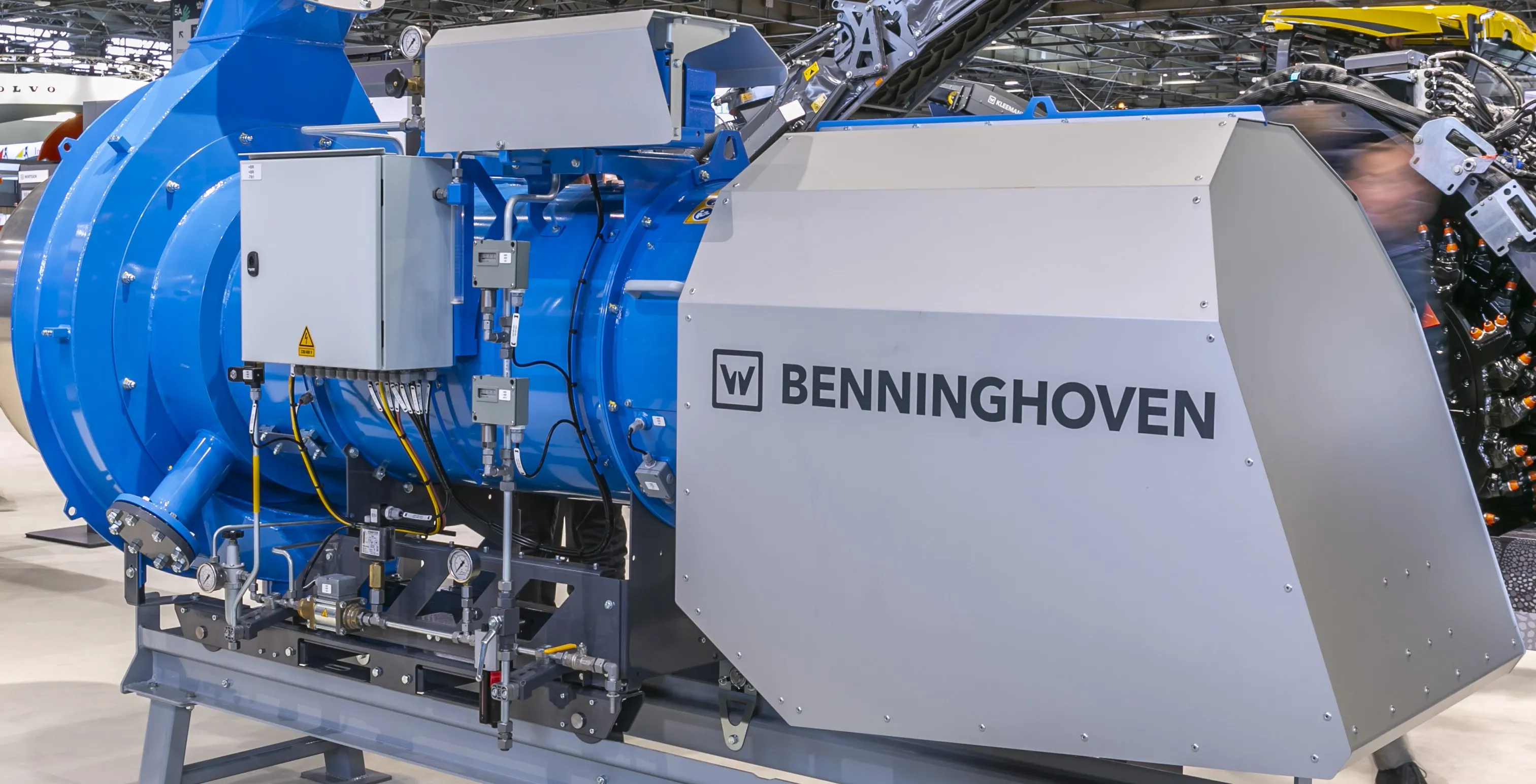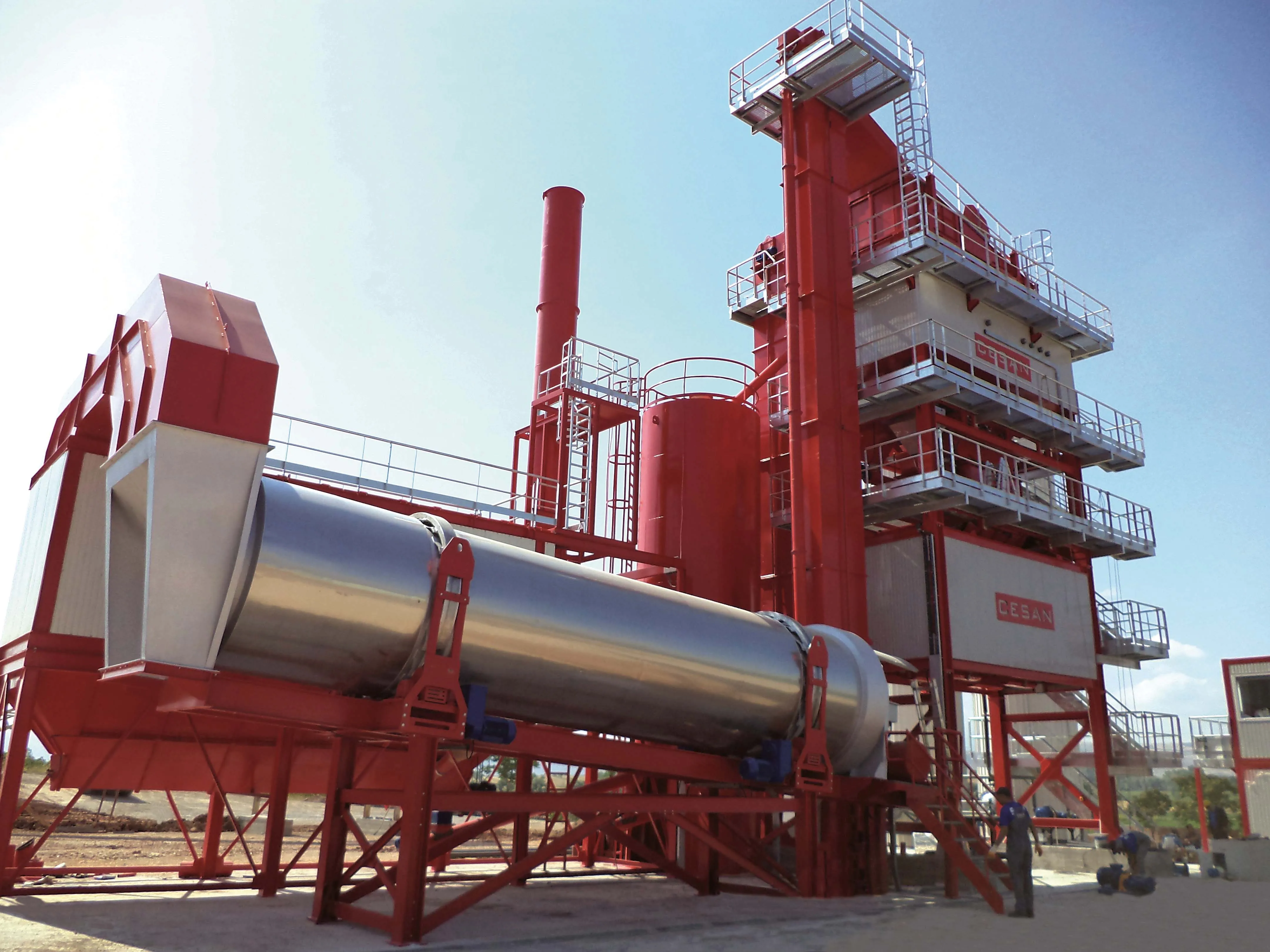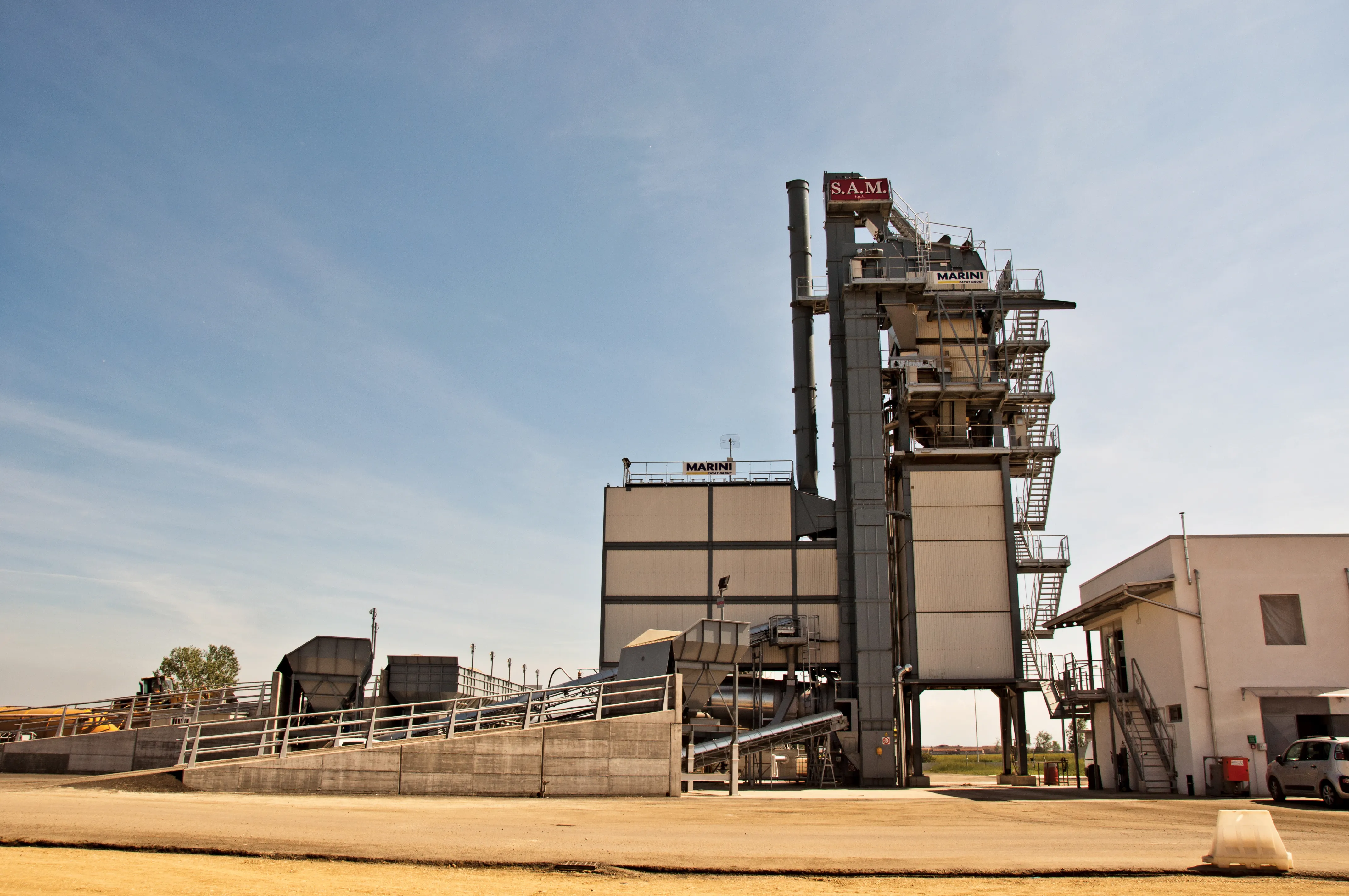
An interesting technology in the asphalt plant segment is the development of burners capable of running on hydrogen. Ammann and Marini have both unveiled burners being developed that can use a mix of fuels as well as up to 100% hydrogen. Meanwhile
An interesting technology in the asphalt plant segment is the development of burners capable of running on hydrogen. Ammann and Marini have both unveiled burners being developed that can use a mix of fuels as well as up to 100% hydrogen. Meanwhile Benninghoven has actually begun testing at a plant with its new hydrogen burner.
One of Benninghoven’s customers in Norway has been trialling the firm’s novel hydrogen burner to produce of asphalt.
Benninghoven’s hydrogen burner has an intelligent control system to optimise efficiency during asphalt production. This includes control of the feed systems, including the pressure control section, drying section with burner and burner control. As with the competing units from Ammann and Marini, the Benninghoven burner is a multi-fuel unit and can use natural gas in addition to hydrogen. It can also use light oils. A novel feature is that it can be set to use any combination of the three fuels, with any percentage of either also, depending on fuel availability.
To make the asphalt production process more efficient, Benninghoven says it has developed a new generation of burners that includes the control and drying system alongside the burner itself. With this system, up to four separate burners can be operated at the same time.
This versatile approach increases the cost-effectiveness of the plant as an owner can use the best-available energy sources. Switching between fuels or combinations of multiple fuels is done on the fly, meaning that no shutdown or downtime is required and with only minimal temperature fluctuations in the process. Emissions are kept low when using hydrogen as a fuel are kept very low, with minimal NOx being produced.
The company also says that the power draw has been reduced by 20% while keeping the feed capacity constant. Heat transfer efficiency has been significantly improved by maximising the use of the burner space and providing a burner control and geometry that ensures optimum flame production for each fuel. Another significant benefit for plant operators is the reduction in noise emissions.
Green hydrogen is a sustainable fuel, producing no greenhouse gases and is suitable for the heating process thanks to its high energy density. In many cases, facility operators wanting to start using hydrogen as a fuel experience difficulties due to current limitations in their infrastructure. Burner technologies from Benninghoven can be used to equip both new facilities and existing asphalt mixing plants, while retrofit solutions can be deployed in plants from other manufacturers. This gives a plant operator the chance to upgrade to the latest technologies, an important aspect for ensuring economic, sustainable asphalt production and long-term plant operations.
With one unit already in use, the firm is currently in discussions with customers in Europe and the Middle East for a further four units.
Meanwhile, Benninghoven and Ammann have also been taking other steps to address the issue of alternative fuel solutions.
The fuels of the future are attractive when it comes to their availability, as fossil fuels are not only limited, but are becoming increasingly more difficult to produce. This will make it more important that asphalt plant owners select the right technologies to be prepared for the future by using alternative fuels.
Biofuels can reduce dependency on mineral oil and can be produced from feed such as rapeseed and sugar cane. Meanwhile tall oil, a waste product of sulphate cellulose production can be used also.
Ammann offers a package of systems that use renewable energy sources or, in some cases, convert a waste product into fuel. The firm says that this conserves natural resources and puts less pressure on landfills. Wood dust, a waste product from industry, is an important fuel option and is a renewable raw material that can be grown with sustainable methods and can be considered as a carbon neutral fuel.









